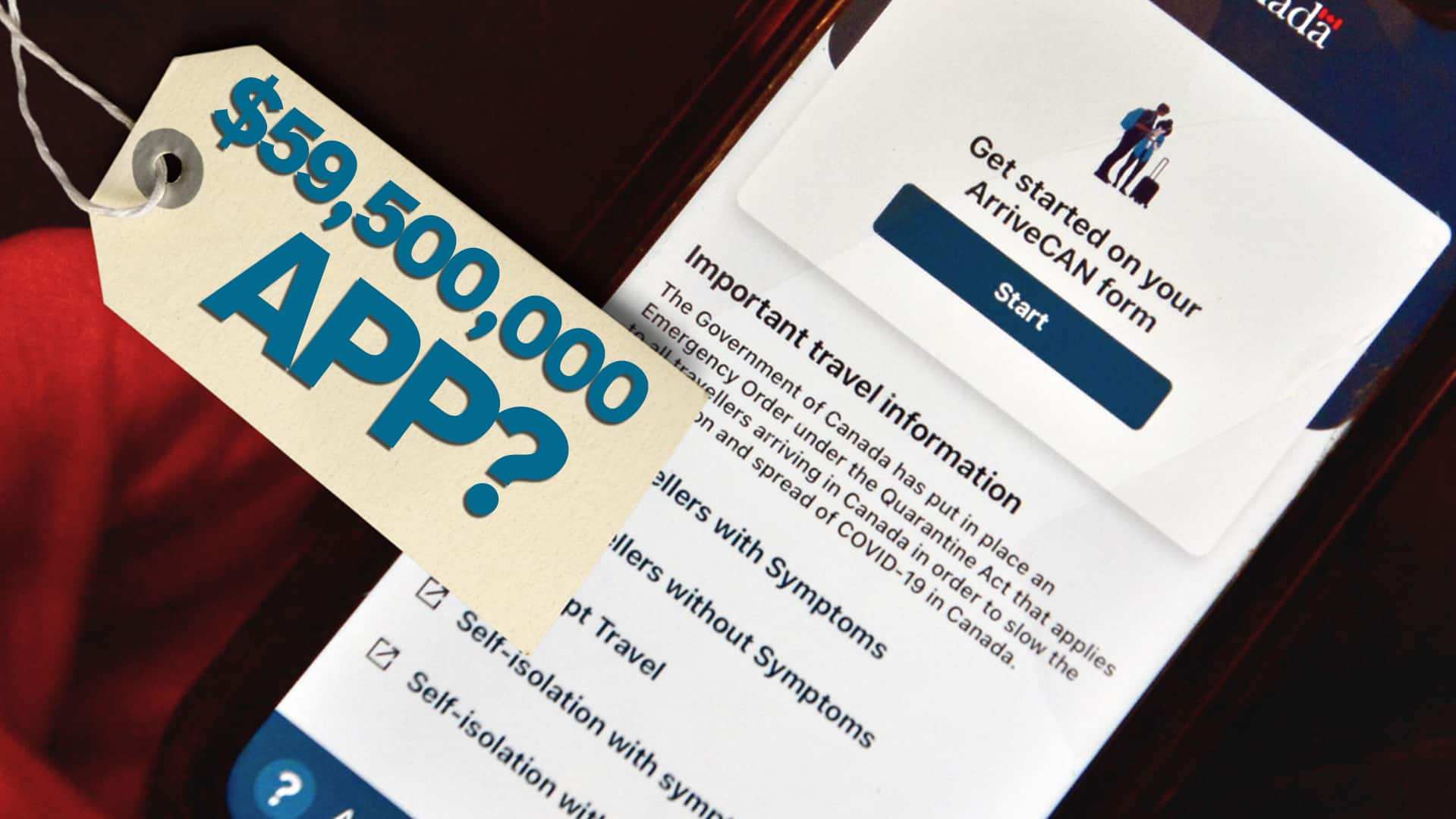ArriveCan contractor rejects auditor general report, blames government’s poor record-keeping
One of the partners at GC Strategies is rebutting an auditor general’s report that suggests his firm earned $19 million for the ArriveCan application, arguing that the government’s poor record-keeping inflated that estimate.
Kristian Firth testified before the House government operations committee for more than three hours on Wednesday. It was the first time he’s made public comments since Auditor General Karen Hogan released her report on ArriveCan last month.
Hogan’s report estimated the total cost of the ArriveCan app at just under $60 million and said the government’s over-reliance on outside contractors contributed to the project’s ballooning costs.
GC Strategies was the contractor that received the most money for the project, according to Hogan’s report. But Firth told the committee that his records indicate his firm received only $11 million for ArriveCan, not the $19 million cited by the auditor general.
When asked why his math differed from Hogan’s, Firth blamed the government’s contracting process and record-keeping.
“There were three COVID-19 pandemic contracts. There was not one that was solely set aside for ArriveCan. So I can understand why it was hard for the auditor general,” Firth said.
In a scathing new report, Canada’s auditor general says the final cost of the ArriveCan app is ‘impossible to determine’ due to poor record-keeping by the Canada Border Services Agency. Andrew Chang breaks down the report’s findings about this pandemic-era tool that is estimated to have cost Canadians nearly $60 million.
Hogan noted in her report that the final cost of ArriveCan was “impossible to determine” due to poor financial record-keeping at the Canada Border Services Agency (CBSA). Firth agreed with that assessment
“There’s lots of reasons why there could be discrepancies. We understand the financial systems and the codes aren’t the best at CBSA,” he told the committee.
Firth said the auditor’s estimate included figures that had been billed up to May 2023, even though the app was finished in July 2022.
“So there’s another year’s worth of billing there that may not even been ArriveCan, but again no one knows if it’s ArriveCan or not because of how it’s recorded internally,” he said.
He also suggested that some CBSA officials may have added an ArriveCan “twist” or labelled other projects as being related to ArriveCan in order to secure funding.
When reached for comment on Firth’s appearance at committee, Hogan’s office said it doesn’t comment on third party testimony.
Aside from the main contract, the government issued task authorizations to carry out work for certain aspects of the app. But not all of the task authorizations issued for the project were used, Firth said.
“So you may see one for $200,000 but only $120,000 was actually used,” Firth said.
“This is, again, where these inflated numbers can come from, because there’s just not the financial system in place that can do real-time health checks.”
Hogan said she found little in the way of documentation to show how or why GC Strategies was chosen to work on ArriveCan.

The company was given a sole-source contract in April 2020 despite a lack of evidence that the firm had provided a proposal document for the project, Hogan’s report said.
Firth said it was Public Services and Procurement Canada that reached out to his firm initially.
Hogan also reported that GC Strategies was involved in developing requirements that were later used for a competitive contract. That contract — valued at $25 million — was awarded to GC Strategies, the report says.
Roch Huppé, Canada’s comptroller general, told the House public accounts committee last week that GC Strategies and its predecessor, Coredal, have been awarded 118 contracts totalling $107 million since 2011.
But Firth insisted that he and his partner, Darren Anthony, were not involved with Coredal prior to 2015. He said the two bought the company that year and that he had worked for a different firm between 2007 and 2015.
The government suspended all of its current contracts with GC Strategies in November. Last week, Public Services and Procurement Canada (PSPC) announced that it had suspended GC Strategies’ security status, effectively banning the company from bidding on new contracts with security requirements.
Firth admits he met government officials outside work
A number of MPs questioned Firth’s numbers and also called into question some of his previous testimony.
During his appearance at the government operations committee in November, Firth said he had never met with government officials outside of work. But when questioned Wednesday, he admitted to meeting several government officials outside working hours.
“Why is it every time you come to this committee do you lie to parliamentarians and you lie to Canadians?” Conservative MP Michael Barrett posed during his time.
A partner at GC Strategies told a parliamentary committee that his two-person firm, after taxes and expenses, made $2.5 million for less than 10 hours of clerical work per week, pointing to quality work delivered through similar previous contracts.
A previous report by Alexander Jeglic, Canada’s procurement ombudsman, found that the criteria used in awarding the $25 million contract were “overly restrictive” and “heavily favoured” GC Strategies.
MPs repeatedly asked Firth which government officials he worked with to develop the criteria for that contract. Firth avoided those questions, citing an ongoing RCMP investigation into ArriveCan.
When asked if he or his partner had been contacted by the RCMP, Firth said they hadn’t.
Conservative MP Garnett Genuis called Firth’s refusal to answer the questions a “breach of privilege” and moved a motion to refer the matter to the House of Commons. The motion was unanimously adopted.
Firth’s partner, Darren Anthony, is expected to appear at committee on Thursday.
View original article here Source











